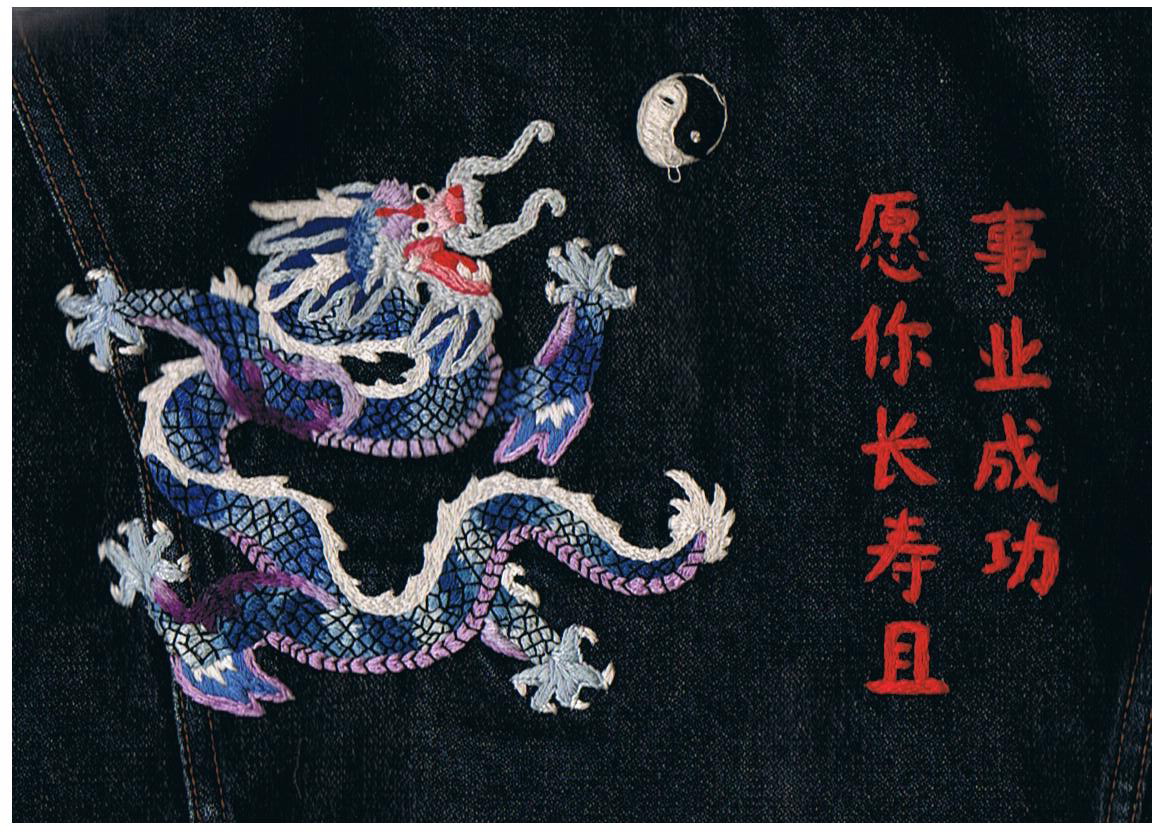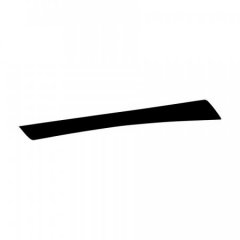Blogs
Featured Entries
-

week two
By grawrt
All foreign students in the class are technically not even part of the system yet. What does this mean? I'm guessing it means we could literally not attend classes and no one would notice because we're not even technically registered in the course. It's a bit strange. But I suppose I can understand. There are some classes that we 3 foreign students are not required to take. Such as the 政治 politics course, and the 中国语言文化 class. I also feel like I shouldn't even be in the 口译 class bec- 7 comments
- 107525 views
-

997,630 Characters to Go
By murrayjames
In “The 2019 Aims and Objectives Progress Topic” thread, I recently resolved to read one million Chinese characters in books and articles this year. Our esteemed forum administrator @roddy reached out to ask if I would chronicle my attempt to do this through posts on this website. And here I am. My goal is to read one million characters in 2019. To accomplish this will require reading 2,750 characters per day, or three to seven pages of text per day, on average. That is a manageable- 2 comments
- 1466 views
-

Mirror, mirror, on the wall...
By anonymoose
Not much to say for this one. Enjoy!- 4 comments
- 1284 views
-

Toilet Etiquette
By somethingfunny
In some places this kind of thing could get you into a lot of trouble. So, what do we think of the calligraphy on show here?- 4 comments
- 32527 views
-

Currency
By stapler
So this isn't a sign, but it does have Chinese characters. That counts right? Not complicated, weird, or confusing. Just historically interesting. Found in the bottom of a drawer. All up there's 15kg worth and not enough 分 to even make a 角- 9 comments
- 90651 views
Our community blogs
-
Latest Entry
十月十四号
我很失望。
七月十四号我开始新的日记只用汉语。
到七月十五,我停了!
我停了为了集中提高我的听力。[See Note 1]
从今天我会集中写句子因为。
我很难写对法语的句子。[See Note 2]
这使得说汉语很难。[See Note 3]
我先提高我汉语写的能力然后我提高我的口语能力。
Note 1: Can I use 了 here? I've been told I need to use 下 but not sure why.
Note 2: Trying to say "I find it very hard to write grammatically correct sentences."
Note 3: Trying to say "This makes speaking Hanyu very difficult."
我正在看《如若巴黎不快乐》。
我觉得不很好中国戏剧。
为什么在中国戏剧主要男的演员常常逼女人做不想做的东西?
女人说“不,不,不” 可是男人还逼她。
在英国,观众会抱怨。Sorry for my poor writing!!!!
-

- 17
entries - 78
comments - 33058
views
Recent Entries
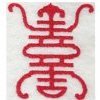 Latest Entry
Latest Entry
New eyes - Renewed enthusiasm
Hello everyone,
It has been a while since I last updated my blog. There were a couple of reasons for this - My eyes

My vision was deteriorating quite a lot and last November the decision was taken to under go cataract surgery. As this was in the UK and on the NHS the wheels grind (no complaints it just the way it is) and eventually I now have 2 new lenses and can see better than I have been able to for many years. I found it was becoming increasingly frustrating trying to read characters with bad eyes and magnifying glasses are a pain, hard to scan pages with one.
I am still in recovery, it is only the third day after my second eye so slowly slowly does it.
My intention is to return and update my blog with my new learning schedule and updates as to my successes and failures and hopefully help myself and others to progress with learning Chinese.
Just wanted to update anyone who was interested that my hiatus from learning is now turning slowly into a return to learning.
- 17
-

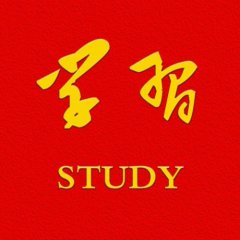 Latest Entry
Latest Entry
Occupation affix particles in Chinese
In most of the world's languages, you can turn a word into its respective occupation by adding affixes to it. However, as Chinese doesn't conjugate, we attach an additional character to a word instead to form that corresponding job. One aspect in which Chinese differs from English when forming occupation words is that in English, what suffix is used depends mainly on the origins of words, but in Chinese people choose occupation particles based on the properties and characteristics of that job. Here're some practically and frequently used occupation particles in Chinese.
1.家
家, with its original meaning of a family or a clan, can be extended to refer to a particular philosophy, theory or ideology. Hence, when it's used to form an occupation word, that occupation would be usually related to a professional skill, interest or talent. For example:
-文学家: a person who has been educated on literature — a litterateur.
-画家: a person who is professional in drawing — a painter.
-科学家: a person who has professional knowledge about science — a scientist.
-音乐家: a person who is well-educated and professional in music — a musician.
-美食家: a person who is passionate and authoritative in appraising foods — a gourmet.
It's good to note that when two different occupation words are derived from the same origin, the one with 家 added often has a higher level of profession, authority or recognisation. For instance, 歌手 and 歌唱家 are both people who take singing as their jobs, but 歌唱家 is definitely regarded as an artist while 歌手 is probably just a public performer or a pop song singer.
Another interesting fact is that when we come to players for specific musical instruments, the only two that are conventionally named with 家 are 钢琴家, a pianist and 小提琴家, a violinist.
2.师
师 originally means a teacher or an adviser. When a job is named with 师 attached, it refers to people who are well-trained or experienced in a particular area. The difference between it and 家 is that a 师 may not necessarily have the profession or talent. Here're some examples:
-教师: a person who is trained to teach others — a teacher.
-厨师: a person who is trained to work in a kitchen — a cook.
-理发师: a person who is trained to manage people's hair — a barber.
-会计师: a person who is trained to account money — an accountant.
3.手
手 means hands, thus referring to people who have high skills or talents, but only in a small area. Unlike 家, a XX手 usually doesn't have an overall profession in a general field, but in a much more specific section. It is very often seen in players of a particular instrument. For example:
-鼓手: a person whose task is to play the drums — a drummer.
-吉他手: a person who plays the guitar — a guitarist.-小号手: a person who plays the trumpet — a trumpeter.
-舵手: a person who is responsible for managing and controlling the helm — a helmsman.
4.工
工 means originally work or labour. Hence it is usually used to name those jobs that need hard labour or manual processes. For example:
-技工: a person hired to manage technical issues — a technician.
-水管工: a person paid to repair waterpipes — plumber.
-电工: a person paid to check and fix electrical devices — an electrician.
-油漆工: a person who paints buildings — a painter.
5.匠
匠 basically means a craftsman, so it is used for any job related to crafting and designing. Though it also involves laborious processes often, it's different from 工 as the labour is done in order to craft or make a certain object or artefact. For example:
-木匠: a person who uses woods to do handicrafts — a carpenter.
-铁匠: a person who crafts metal objects — a blacksmith.
-

- 6
entries - 0
comments - 1393999
views
Recent Entries
- 6
-

- 6
entries - 18
comments - 4080
views
Recent Entries
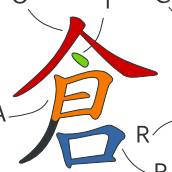 Latest Entry
Latest Entry
Inputting 2-Unit Characters
Two-unit characters are characters that can be divided into two units based on the shape of a character. This can be a division based on left-to-right, top-to-bottom, or outer-to-inner. If you are familiar with radicals then the concept is not so alien. For left-to-right often a spacing, or lack of connecting from the left side of the character to the right side of the character, is where the the character is divided up into two units. For top-to-bottom it can be more tricky, but again if you think back to character radicals it is not a leap. For outer to inner, there is an outer shell unit that encompasses the inner unit.
Once the character is divided up into two units, the following rules apply for determining the Cangjie input code:
1) The first unit may only have up to two Cangjie symbols input. If there are more than two symbols in the unit, then only the first and last Cangjie symbols are input on the keyboard.
2) The second unit may have up to three Cangjie symbols input. Again, if there are more than three, some skipping is involved. In this case, the first, second and last Cangjie symbols are input on the keyboard.
This may seem a bit abstruse, so let's look at some examples. Unfortunately I am on my android device right now and I don't yet have a very good Cangjie input method tool, so I'm still looking for a better way to bring up just the Cangjie symbol to show how things are built up. As such, to make sense of the following I suppose you need some familiarity with Cangjie symbols. I will try to update this post later if I can figure it out.
1) 風 / 风
A quick visual examination yields a clear outer-to-inner relationship in both the traditional form and simplified form of the character. The outer unit is 几, which can be made up using Cangjie codes that look like 厂乙 (note these are radicals on don't reflect the exact Cangjie symbols, but I wanted to provide something to help see how the unit is broken down to Cangejie symbols. To build the unit, the input code is HN for the outer unit. The inner unit looks like 虫 with a "hat" on top. This unit requires four symbols, so we have to skip the third, with the Cangjie code being HLI. The resulting Cangjie code for the entire character is HNHLI.
For the simplified character it is similar. The first unit is HN still, but the innter unit is simplified. It turns out that this unit actually represents a Cangjie symbol, so the Cangjie code for this unit is just K. Putting it all together, the resulting code for the entire character is HNK.
2) 鍾 / 锺
Upon visual inspect, this character is a left-to-right two-unit character. The first unit is 金 or钅, and the second unit is 重. Well, 金 is actually a Cangjie symbol, so for both the traditional and simplified forms, the input code for the first unit is C, and that completes the unit. The second unit, however, has four Cangjie symbols in it, so we have to skip the third since we are only allowed up to three symbols. The unit is made of a "hat" stroke on the top, 十 just below it, then skipping 田 because it is the third symbol, and finally 土. This turns out to HJG, and thus the entire code for this character is CHJG.
3) 規 / 规
Again, this is a left-to-right two-unit character. Based on the Cangjie symbols, the left side is built with the codes QO. For the right side, the code comes out to BUU for the tradtional. For the simplified, it is BHU. Again, I wish I could input just these Cangjie symbols for reference, but this one is proving challenging for my Android input method. The final code is QOBUU for the tradtional version,a nd QOBHU for the simplified version.
Well, that is it for today, looking back at this post I am not even sure if it is useful. But oh well, this is kind of my journal too. When I am back on a real computer I will see what I can do.
- 6
-

- 3
entries - 20
comments - 4182
views
Recent Entries
 Latest Entry
Latest Entry
90-day transcribing challenge: Final update
This morning I finished day 90. I used two types of content:
1) Clearly spoken stuff:
Slow Chinese, HSK5 recordings, and a magazine podcast for natives. Sometimes I prepared subtitles beforehand using WorkAudioBook, and during the transcribing session I thus was able to do corrections immediately after each line. This lead to time "wasted" doing the corrections, but also stopped me from repeating the same mistake again. Other times, I did not prepare subtitles, and just used WorkAudioBook for automatic segmentation, and did the corrections after finishing each session. This, of course, can cause an accumulation of errors in repeated words, but also means I could write more in a session, as I was not distracted with corrections. So... The left column in the data is not very consistent in how it was done, and even less with the material used. In day 52 I forgot to start the pomodoro clock, so I got an outlier score. I'm leaving it out of the monthly averages.
2) A TV drama called Great Marriage.
I downloaded both mp4 video and srt subtitles from YouTube and used them with the fantastic Lingual Media Player, which can automatically stop after each subtitle line and makes it easy to toggle subtitles. In 90 days I only reached episode 8 of a 40+ episode drama, and that's watching long parts without transcribing! So, with this abundance of ready-made material, the right column is consistent both in source and in execution.
During the first 75 days, I did 2 pomodiri (50 minutes) per day for each column. But two weeks ago I signed up for December's HSK5, so, to make time for vocab study and practice tests, during the last 15 days I only did 1 pomodoro (25 min) per day for each column. So, in order to "normalize" the scores with the previous days, I added a *2 in the formula.
You can also notice that around day 32 I also started to seriously attack my Pleco SRS backlog. The number here is how many pending cards I have each morning.
My observations:
Clearly spoken stuff
You'll notice that during the last month my average score actually dropped for "clear stuff". Maybe in part because I switched exclusively to a magazine podcast for natives in day 60. I must add that, although this podcast is for natives, the magazine is a Chinese translation of the English original, and the podcast is actually just read from the magazine, so it's not at all like 原来是这样 or any similar 100% native, conversational podcasts.
TV drama
In the graph, you'll also notice that, after a fantastic increase in comprehension from the fist month to the second month, the're no such big increase for the third month. Maybe I'm hitting "diminishing returns" with this particular drama. Still, I've learned a lot!
HSK5
As mentioned, I'm attacking HSK5 on December, just as a personal challenge, not for scholarships or anything. My cousins, who are Chinese teachers at the local Confucius institute, passed this exam two years ago and then went on to get their Master's degrees in China, but my current level is nowhere near what theirs was two years ago! My current level fits perfectly the B1 description given by the Europeans. Still, after measuring myself with a couple of old HSK5 papers, I discovered I can pass, even if they completely discard my two essays. So in part I'm taking the test to prove a friend of mine that HSK is actually just B1... So I signed up for a test preparation class at the local Confucius. Nobody else signed up for level 5, so I accepted being put with level 4 test takers. My teacher can't speak Spanish, which helps.
Conclusion
So yes, this helps. The data shows it. I believe this has mostly given me confidence with my handwriting, as, before this, I only wrote individual words. This will certainly come in handy during the HSK5 writing part, because the only option available in my country is the paper test. During my attempts with past papers, I found this part to be the most relaxing. I can finish it in half the time. Of course, with awful grammar! (My teacher will help me with my writing). I haven't really done any traditional study of grammar after an introductory course back in 2012. It's been mostly input, input, and more input, particularly after I finally took Chinese seriously in 2015 and started with Heisig's Remembering Simplified Hanzi. Of course, I've checked difficult to understand points with Pleco and the Chinese Grammar Wiki along the way.
So, what will my listening practice be now? I'll be attacking every single HSK5 past paper I can find, so that will be it, for the most part. I'll also keep watching the drama with LaMP, but without transcribing it. I might transcribe dubbed videos of talks, however, just to keep writing.
Thank you for reading! Suggestions are welcome. I'm attaching the raw data, the monthly averages and a sample of my "day 90" handwriting. Now my focus will switch to reading speed, as it's currently my weakest point. I'll soon write another post about it.
- 3
-
 Latest Entry
Latest Entry
First update
A little embarrassed to notice I haven't updated on my progress since the first post - perhaps should have been predictable given how far down my list of priorities it this blog sits, but all the same...
On the other hand, the challenge is still going strong - 74/112 days completed now, none missed so far! My method for keeping track of this, and motivating myself, is the old but classic crosses-on-a-calendar method. I've tried some phone-based "don't break the chain" apps in the past, but none of them have quite the same impact as keeping physical track of my progress. It's gotten to the point that, when planning excursions or family days, my first thought is often "how can I plan my hours around that to guarantee I don't miss a day?"
That's not to say it's become easy. I've almost never felt like the 2 hours were effortless. It's just without this motivation I'd probably do less and less every day until I stop altogether. Anyway, if you're struggling with motivation to keep a daily habit (as I often have), I can definitely recommend buying a cheap calendar and just marking it off every day. Super effective.
So what have I learned over the 46 hours of Chinese since I last updated this blog?
Firstly, just as intermediate learners often observe, the rate of progress feels slower every week. I'm still on the boundary between intermediate/upper intermediate on ChinesePod, and when I listen to hard dialogues I downloaded three weeks ago, I don't feel like they've become any easier to decipher in the intervening time. New stories and dialogues introduce just as many new words now as they did two months ago, and I'm getting a visceral sense of just how vast a task learning a language is. The number of near homonyms makes this no easier, and I'm constantly confusing the meanings of words that to a Chinese speaker sound nothing alike.
On that topic, tones in particular continue to frustrate me. I'm not exactly tone-deaf - a few weeks ago I tried Olle Linge's tone training - 100% on the initial level placement - and John Pasden's tone pair drills - no problem there either. But I still often make comprehension mistakes in full sentences due to tones, and still can't reliably predict the tones of an unfamiliar word when spoken as part of a larger utterance. Even when hearing a tone isn't necessary to understand a sentence (at my level context is still mostly enough) it feels like full comprehension is slower than it should be, I'm using grammar/context as a crutch, and the other shoe is going to drop when I try to advance to native materials. It seems like there's a big gap in the market for intermediate tone training - forcing students to listen for tones until this habit is fully internalised. Does such a product already exist? I'm also quite curious what others think about this problem, and whether it's really an issue - particularly from those who have learned Chinese to a very high level of proficiency.
On the other hand, I do feel like I'm currently developing in three related areas.
- "Chinese subconscious" - occasionally in the past two weeks I have found myself following some non-trivial material without actively concentrating on the language at all, just thinking about the subject material. This is one of the things I had been hoping to achieve through mass listening, and it's good to feel it might eventually pan out. I have very limited stamina to fully concentrate on spoken language (I can't maintain 100% concentration for more than a few minutes!) so this is very necessary in the long run. This point might seem trivial to many here, but it's a big breakthrough for me!
- Speed of listening. The 4th level of the Chinese Breeze books has helped with this, as the narrators have stepped up the speed a bit for this level, forcing me to internalise more of the very high frequency words and grammatical structures. (I'll give a more complete review of the Chinese Breeze books later if I can find the time)
- Ability to learn. The more words I learn, the easier it seems to be to remember new words, and the better I can distinguish between similar words. And because I can listen faster, I can hear more words and grammar structures in 2 hours. It feels like entering a virtuous cycle. Of course because I've properly hit intermediate level now, it still feels like my rate of progress has slowed in spite of all of this.
Finally, I've entirely dropped SRSing of new words in isolation. I've just found it a drain on my mental energy with seemingly little-to-no gain. The SpoonFed Chinese Anki deck is doing a great job of introducing me to new words in context, and providing regular reminders. I re-listen to ChinesePod episodes at regular intervals when they have lots of new vocabulary (is there SRS software that can schedule this for me more conveniently than Anki?) The graded readers use the same words so often that there's no need to SRS them. And best of all, all of these activities are simply more fun than grinding Anki decks of words (well SpoonFed isn't much fun, but is definitely more effective). The only thing I'm losing here is the ability to recognise characters of words I'm learning, but given that all of my learning material currently comes with pinyin, this is something I can tolerate (and will probably fix through extensive reading after the challenge is over)
-

- 7
entries - 10
comments - 33985
views
Recent Entries
Latest Entry
A question
Here is the line that made me write this blog post.
奇点:那结果怎么样?找着了吗?
I am familiar with the 着 for a continuous state.
However, 着 in this line doesn't seem to indicate continuous state.
What is 着 doing in this line?
It does look like people say 找着了吗 based on the quick search online. LINK
- 7
-

- 6
entries - 32
comments - 13200
views
Recent Entries
 Latest Entry
Latest Entry
Taking 3 steps back to walk foward a mile
Well its been a while since I updated this blog and I have tons of excuses why and why I haven't studied for 6 weeks until last week. But that's what they are just excuses, and I should of never of stopped. So I am going to redo all the NPCR chapters I have already finished, redo most of the pimsluers I have completed and re listen to podcasts that I already know. I know this will take a few weeks but I will be back up to where I was and with accurate tones and words. Has this happened to anyone else? Seems like at times stepping back a few steps will help your get to your destintion.
- 6
-

- 27
entries - 90
comments - 190899
views
Recent Entries
This was copied from the conclusion of a research paper I wrote. I'm not super confident on the quality of the paper so I'm not putting it here. A lot of this should be "no shit" to many of you. Some of it might be surprising.
A teacher’s ability to naturally gravitate toward good pedagogy depends on target language proficiency, linguistic expertise, and familiarity with current research and technology. Based on the studies referenced in this paper and the discussion in the previous section,
- Reading complements writing and writing complements reading. They should be developed together, with reading prioritized.
- Students should not be expected to write whatever they can say or read, but should be expected to write something in order to develop sensitivity to orthographic features of Chinese.
- Students should be shown and be allowed to use the best learning tools available on their various devices.
- Allowing novice students to produce written Chinese using phonetic input methods is not a handicap, but a scaffolding tool providing reinforcement of the connection between phonetic notation, meaning, and written representation of words.
- Learners who are freed from having to handwrite everything in their oral vocabulary should learn handwriting at a more deliberate pace, where more attention is paid to form.
- In particular, the modular structure of Chinese characters should be taught explicitly.
- Although unfashionable, rote repetition is still useful in developing motor memory, which automatizes encoding, allowing a focus on meaning.
- The same stroke order should be followed each time a character is written.
- 27
-

- 3
entries - 10
comments - 25496
views
Recent Entries
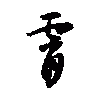 Latest Entry
Latest Entry
Gan, Gan, and Gan
I have had trouble with the trio of traditional characters which simplify to 干. It turns out (as usual) that all three have curious and twisted etymologies. Here are some mnemonics for keeping the traditional characters 幹干and 乾 straight in your head:
乾gan1
This is the most straight-forward of the trio.
It means "dry":
乾果
dried fruit
乾淨
clean
In its qian2 pronunciation, it is also one of the Eight Trigrams, and a surname, but those are much lower frequency uses.
Mnemonic: When there is a drought you beg for even a little mist.
Etymological note:
Wieger clarifies that "dry" was originally written using 旱 on the left (with 十 above it?). The character 乾 originally was read qian2 and represented the sun shining into the jungle, dislodging vapors which then rise up into the sky.
幹gan4
This character can mean "to do" or "tree trunk".
It can be used alone:
你幹了一件蠢事。
You have committed ("done") a folly.
Or in the common idiom gan4ma5:
你幹嘛/ 你幹甚麼?
What are you doing?
A canonical example of the "tree trunk" meaning is:
樹幹
shu1gan4
tree trunk
Mnemonic:
A tree (which originally was made of wood but is now a post-modern clothes hanger pole) is topped with an umbrella of leaves. But, through the mist, you can only see the trunk.
Etymonlogical note:
Wieger says the 干 component in 幹 is supposed to be 木, the former being an "absurd phonetic redundancy" This would make more sense.
干gan1
This is the odd-ball in the group. It has several meanings. Its most prolific meaning is "to offend":
干犯
gan1fan4
to offend or to violate
干涉
gan1she4
to meddle
But this gan can also mean "stem" in:
天干
the Ten Heavenly Stems
An archaic meaning is "shield":
干戈
gan1ge1
weapons of war, literally "shield and spear"
Mnemonic:
In Toronto, up until a couple of years ago, it was illegal to hang clothes outside, i.e. one of the biggest offenses and ways to offend the sensibilities of people was to hang your clothes outdoors. Silly, but unfortunately true. (credit: koohii user vorpal)
Etymological note:
Wieger tells us that 干 represents a pestle. By extension it means to grind or destroy. Destruction in the moral sense gives offense. Destruction in the martial sense gives the warlike association in 干戈.
- 3
-

- 47
entries - 229
comments - 108130
views
Recent Entries
Latest Entry
女婿 is a male
Just a warning, in case all of the "女" confuses you into thinking that a "女婿" is female. I assumed it was, and boy did I get the wrong impression of that relationship!
"姪女婿" is male too. Just saying.
- 47
-

- 70
entries - 448
comments - 1255363
views
Recent Entries

Point out the errors in the translation.
Mark: AWESOME night. Dry spell = broken.
Mark:这天棒透了。干旱期结束了。
Karen likes this.
Karen觉得这挺赞的。
Mark: MOM WTF
Mark:娘你发疯了吗
Karen: Oops. How do I unclick?
Karen:是故意的。玩得很开心吗?
Melissa: HAHAHAHAHAHA
Melissa:呼呼呼呼呼呼
- 70
-

- 3
entries - 3
comments - 19478
views
Recent Entries
Latest Entry
Translating short sentences: 回忆起过去那如火如荼的革命岁月...
Have almost finished translating the song 纯真年代 so will post that up when done, but to take a break and try translating some smaller passages I'm going to copy some sample sentences from NCIKU.com's dictionary. Here is the first one I tried with my translation underneath:
A: 回忆起过去那如火如荼的革命岁月,他激动不已。
B: 岁月漫长,世事如白云苍狗
A: Remembering the rapidly growing revolutionary years, he is endlessly excited
B: The years are endless, world affairs are like white clouds and dark green dogs
- 回忆起过去
"memories form and pass by".
I thought remembering or as he remembered would be an appropriate translation but I am unsure.
- 那如火如荼的革命岁月
"That like fire like bitter herb revolution years".
This really confused me when I broke it down as I didn't know how to combine the 如火如荼 part. The dictionary said it was a saying meaning either "magnificent" or "originally used to describe a soldier's demeanor and discipline; developing quickly; growing rapidly;blazing", so I opted for rapidly growing as seems more appropriate to describe a revolution.
- 他激动不已
"He excited endlessly".
I thought this would sound better as "His excitement is endless" but that would need 的, and the translation that I have for 不已 is endlessly, which is an adverb. I would have used this first translation but when I saw that 漫长 translates as endless in the second phrase I compared the two.
I don't know what time frame the first line occurs in. Present tense? - As he remembers the revolutionary years he is endlessly excited, or past tense? - As he remembered the revolutionary years he was endlessly excited.
- 岁月漫长,世事如白云苍狗
I'm not sure about the last line, Nciku.com says that it's a saying meaning "how things change in this world". My literal translation looks a bit silly but it's based on my current knowledge so I will leave it as it stands.
- 3
-

 Latest Entry
Latest Entry
my first week in china
I've been here in Beijing at Beihang University for a week now. The lectures starts on tuesday so I have had some time to explore the surrounding area and check out some markets. So far it has been a great experience and from a swedes point of view the chinese are very friendly and open for contact. I wish I had some language skills to be able to chat with people but that will change (hopefully!).
Some photos : http://www.flickr.com//photos/keithakid/sets/72157627476683131/show/
-

- 2
entries - 8
comments - 1037000
views
No blog entries yet
- 2
-

- 13
entries - 89
comments - 63335
views
Recent Entries
Latest Entry
Toilet wit
- 13
-
 Latest Entry
Latest Entry
开始看文章,请您改错误,谢谢您花时间帮我
昨天和今天,我花好几个小时看一篇文章在这个URI: http://business.sohu.com/20100730/n273866891.shtml
我为什么选择“北京人大常委会建言:对流动人口采取新户籍模式”的文章吗?就是因为二零零七年在北京的时候,一个中国朋友叫我周末的时候去教英文。我同意了,然后找到学生们是流动人口的孩子们。这些孩子給我留下很好的印象所以想看到这篇文章对他们的情况说什么。
北京人大常委会建言:对流动人口采取新户籍模式 - 2010年07月30日07:17 - 来源:新华网
北京市人大常委会就“十二五”规划建言 对流动人口采取新户籍管理模式
针对制定北京市国民经济和社会发展“十二五”规划,昨天的北京市人大常委会第十九次会议上,市人大常委会盯紧建设科技创新中心、建设服务业中心、建设宜居城市、加快农村城镇化、合理调控城市人口规模等五大问题,提出了一揽子建议。
我认为上面的意思是在北京从现在到五年以后人们要不但建设很多东西,而且急步农村。加油!
“房地分离”经适房面向全体城镇居民
市人大常委会建议,市政府进一步改进和规范经济适用房在规划、建设、出售、使用、回购及监管等方面的制度,确保其社会保障的性质和功能。在此基础上,研究采取“房地分离”的经济适用住房建管新模式,即购房人只享有房屋所有权,不享有土地收益、处置权。在价格构成上,购房人只承担房屋的基本建安费用、相应的配套设施费用和税费,与政府按照一定比例共有产权。
出售时购房人与政府按产权比例进行收益分配。在适用对象上,应该是面向所有的城镇居民,首次购房的居民都可以根据自己的意愿和实际需要,购买一套能够满足基本生活需求、标准化配置的住宅,做到公平普惠。这种模式,有利于解决以往经济适用住房与市场不接轨、“有限产权”界定难、退出机制难以操作等弊端,还可以大大降低监管成本。
是不是政府不想人们在比较底的价买房子格然后在比较高的价格卖这个房子?华盛顿和美国的别的市政府也有差不多一样的政策,就是买房子以后得等两年才可以卖房子,要不然得付比较大的税费。对不对?
符合条件流动人口采用新户籍管理模式
市人大常委会建议,在合理调控城市人口规模的基础上,加强对流动人口合法权益的保护。要加强对流动人口结构的分析研究,对那些已经在京拥有合法所有权住房、具有稳定职业和收入、连续居住并缴纳社会保险金达到一定年限,符合一定条件的流动人口,研究采取新的户籍管理模式,让他们更快、更好地融入北京。
如果人们已经在北京有工作,有房子,那这个节目要“让他们更快、更好地融入北”。
农村城镇化要“一变四有三进”
市人大常委会建议,要充分发挥农民在农村城镇化中的主体作用,切实保护农民的合法权益,努力实现农村城镇化进程中“一变四有三进”,即:随着农民集体土地性质功能的变化,使农民有住房、有新型产业、有稳定就业、有新型经济组织的股权,进入与城市衔接的社会保障体系、进入均等化的基本公共服务覆盖范围、进入股份合作制的新型经济组织。记者 王皓 实习生 王颜欣 (来源:北京日报)
(责任编辑:李瑞)
文章来源:http://business.sohu.com/20100730/n273866891.shtml (责任编辑:李瑞)
人们想让农民什么时候都有房子和工作。
请您让我知道我的错误。谢谢大家。
---
九月二十一号2010-很感谢Zomac,geesisy,和Archie.,因为您们改了好几个错误
-

- 12
entries - 38
comments - 590872
views
Recent Entries
Latest Entry
Word of the Day 27/7/20 直观
n./adj. 直观
This word means intuitive, audio-visual, visual, i.e. something that is directly perceived through the senses.
直观教具
aids to object teaching; audio-visual aids
直观教学
object teaching
On the upside, I found working with the Facelets API to be very natural and intuitive.
在有利方面来说,我发现使用Facelets API非常自然和直观
The touch-key designed accords with the trend of the products, and operate the products more easily.
符合产品潮流的触摸按键设计,更直观轻易操作产品
For an interesting take on intuitive English vocabulary learning, check out: http://pic.daqi.com/slide/2934663.html
What do you think?
- Read more...
- 0 comments
- 12
-

 Latest Entry
Latest Entry
Mr. Tea Reflects On Making The Switch From Coffee.
I pity the fool who can't shake the evil bean. (Not really, I just wanted to use Mr. T's famous "I pity the fool" line.)
Living on the Big Island of Hawaii for 7 years turned me into a coffee snob. I grew to like the strong, bitter taste of Kona coffee and the coffee my friend grew on the Hamakua coast. During my 3 years in Japan I frequented two small cafes in Gifu City that served strong coffee and sweet cake, and played good, old-school jazz. I never got hooked on Japanese green or barley tea. Japanese green tea is good, but I prefer green tea ice cream and green tea chocolate to drinking it.
So when I moved to China last year I was hoping to maintain the coffee buzz. Not sure what happened. A few lukewarm cans of Nescafe and a few mediocre mocha's at some cafes and I just wasn't feeling the buzz anymore. So I gradually switched over to tea.
Flashback: The best cup of tea I've ever had in China (or anywhere else for that matter) was in a small town called Xiahe(夏河) in Gansu province. It was in a small ramen shop. The young waiter reached into a bag, pulled out a handful of tea leaves that were so dark green they almost looked black, threw them into a drinking glass (not a tea mug) and then poured hot water over them. The tea had a strong, smoky taste but it was also very smooth. I've been trying to "find" that taste ever since (about two years ago). I got a hint of it in a small ramen shop in Miyun (密云) two months ago. It wasn't as strong, but a hint of the smoky taste was definitely there. I asked the waiter what kind of tea it was and he said it was Oolong. A few weeks later I went to a couple of tea shops and tried to explain the flavor of tea I was looking for, but I still haven't found it. Maybe a trip back to 夏河 is in order. Next time I'm going to take some of the tea leaves with me.
So I bought a tea set the other day. And so far, my male ego is taking it in strides. I'm thinking I need some dolls and stuffed animals for a tea party. While she said it looks nice, my wife doesn't share my enthusiasm for tea. She likes fruit juice and milk. I'd like to bring this point up the next time a language teacher throws me a "Chinese people like tea, Americans like coffee" generalization.
I'd like to study the art of making tea. For me, it's about more than just drinking a beverage. It's like a mini ritual. It's about taking time out, sitting quietly, drinking something that tastes good and relaxes me.
I'm digging Jasmine tea. I'm hoping to switch to some green tea as the Summer heats up.
What kind of tea do you like?
-

- 2
entries - 5
comments - 80123
views
Recent Entries
 Latest Entry
Latest Entry
Shanghai's Most Devious Criminals
I take the Shanghai metro a lot. While on the subway they have different TV programs, at the moment usually just the recap of the Shanghai expo of the previous day. On the weekend though I have found they have a program I like to call "Shanghai's most devious Criminals"

The show features a police man and actual CCTV footage of criminals stealing or doing some sort of con. The con in the picture is an old man crossing the street and making an expensive car slowly bump into his partner in crime a bicycle that just happens to be riding next to the car in the blind spot when the old guy walks towards the car. The bicyclist falls down and asks for compensation. The policeman is eventually called and after reviewing the tapes and seeing how these two scam artists worked arrested them for the scam. There was another one 2 weeks ago which had the cop chasing the criminal who ran across a wide 3 lane road and climbed over the median. He was about to get away when a pedestrian saw the cop chasing him, ran after the criminal and tackled him to the crowd, putting the criminal in a headlock until the police could catch up and put the cuffs on him. For a public documentary show it had a bunch of action and a little uneditted violence.
Anyway this use of the Metro TV is quite interesting I thought, it was half instructional on how to spot scams and half (look how we're catching criminals, don't think about trying anything as we have cameras everywhere.)
Much better than the red light -green light of how to get on the subway movies and how not to go after your cell phone after you drop it on the tracks.
Have fun,
Simon:)
- 2
-

 Latest Entry
Latest Entry
Software Switch Stats
It's way too early to tell what if any impact the change in software will have on site usage. But lets look at some numbers anyway.
First off, early indications are that everyone has figured out how to post - new posts figures for the last couple of days are broadly in line with the same days last week. Subtract all the posts made in the topic about the move (which don't really count as normal posting) and you've got figures down a bit, but not to a worrying extent.
There are page redirects in place to bring anyone attempting to visit old forum content pages to the right place on the new system, so search engine traffic is still finding us. It has dropped by about 10% on the same day last week, presumably as Google and the rest update the index with the new urls. That kind of drop is well within the realms of random Internet fluctuations anyway.
Talking of Google, the changes have certainly been noticed - there's a clear spike in indexing as the new pages are visited to check what if anything has changed.

And it's maybe a bit early, but it looks like Googlebot is finding the new pages easier to eat - this shows how long on average it takes to download a page. There's not a lot of value in that information, but it indicates that the new scripts are at least not running any slower than the old ones.
And if anyone wants to do their bit to boost the stats - get posting. Posts generate more posts, and more visitors.
-

- 0
entries - 0
comments - 1405
views
No blog entries yet
- 0
-

- 0
entries - 0
comments - 641
views
No blog entries yet
- 0
-

- 0
entries - 0
comments - 1084
views
No blog entries yet
- 0
